Administration
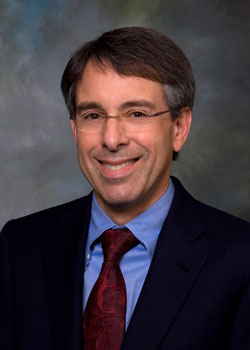 Steve Eglash Executive Director |
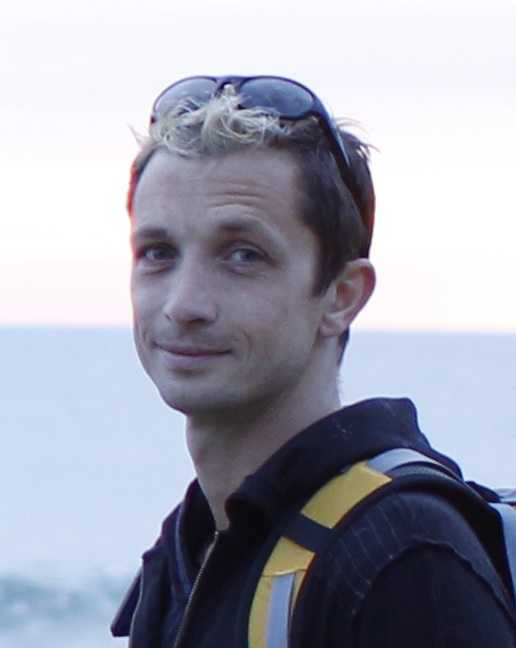 Philip Levis Faculty Director |
 Steve Eglash Executive Director |
 Philip Levis Faculty Director |
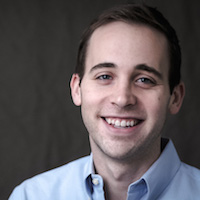 Peter Bailis
is an assistant professor of computer science at Stanford University. Peter's research
in the Future Data Systems group
focuses on the design and implementation of next-generation data-intensive
systems. His work spans novel distributed protocol design, large-scale data
management, and architectures for high-volume complex decision support. He is
the recipient of a NSF Graduate Research Fellowship, a Berkeley Fellowship
for Graduate Study, best-of-conference citations for research appearing in
SIGMOD and VLDB, and a CRA Outstanding Undergraduate Researcher Award.
He received a Ph.D. in Computer Science from UC Berkeley in 2015 and an A.B. from Harvard College in 2011. Peter Bailis
is an assistant professor of computer science at Stanford University. Peter's research
in the Future Data Systems group
focuses on the design and implementation of next-generation data-intensive
systems. His work spans novel distributed protocol design, large-scale data
management, and architectures for high-volume complex decision support. He is
the recipient of a NSF Graduate Research Fellowship, a Berkeley Fellowship
for Graduate Study, best-of-conference citations for research appearing in
SIGMOD and VLDB, and a CRA Outstanding Undergraduate Researcher Award.
He received a Ph.D. in Computer Science from UC Berkeley in 2015 and an A.B. from Harvard College in 2011.
|
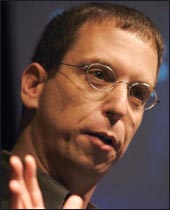 Dan Boneh is a Professor
of Computer Science at Stanford University where he heads
the applied cryptography group. Dr. Boneh's research
focuses on applications of cryptography to computer
security. His work includes cryptosystems with novel
properties, security for mobile devices and the Internet
of Things, Web security, and cryptanalysis. He is the
author of over a hundred publications in the field and
is a recipient of the Godel prize, the Packard Award,
the Alfred P. Sloan Award, the RSA award in mathematics
and five best paper awards. In 2011 Dr. Boneh received
the Ishii award for industry education innovation. Dan Boneh is a Professor
of Computer Science at Stanford University where he heads
the applied cryptography group. Dr. Boneh's research
focuses on applications of cryptography to computer
security. His work includes cryptosystems with novel
properties, security for mobile devices and the Internet
of Things, Web security, and cryptanalysis. He is the
author of over a hundred publications in the field and
is a recipient of the Godel prize, the Packard Award,
the Alfred P. Sloan Award, the RSA award in mathematics
and five best paper awards. In 2011 Dr. Boneh received
the Ishii award for industry education innovation.
|
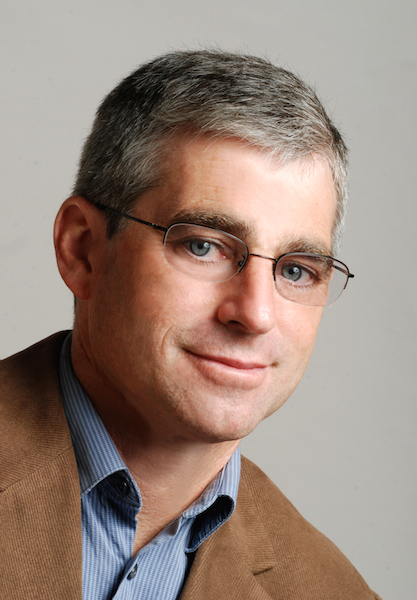 David Culler
is the Freisen Professor Electrical Engineering and
Computer Sciences and Faculty Director of i4energy at the University
of California, Berkeley.
He is a member of
the National Academy of Engineering, an ACM Fellow, an IEEE Fellow and
was selected for the 2013 Okawa Prize, ACM's Sigmod Outstanding
Achievement Award, Scientific American's 'Top 50 Researchers', and
Technology Review's '10 Technologies that Will Change the World'.
He has done seminal work on networks of
small, embedded wireless devices, planetary-scale internet services,
parallel computer architecture, parallel programming languages, and
high performance communication, and including TinyOS, PlanetLab,
Networks of Workstations (NOW), and Active Messages.
He is currently focused on utilizing information
technology to address the energy problem and is co-PI on the NSF
CyberPhysical Systems projects LoCal and ActionWebs and PI on Software
Defined Buildings. David Culler
is the Freisen Professor Electrical Engineering and
Computer Sciences and Faculty Director of i4energy at the University
of California, Berkeley.
He is a member of
the National Academy of Engineering, an ACM Fellow, an IEEE Fellow and
was selected for the 2013 Okawa Prize, ACM's Sigmod Outstanding
Achievement Award, Scientific American's 'Top 50 Researchers', and
Technology Review's '10 Technologies that Will Change the World'.
He has done seminal work on networks of
small, embedded wireless devices, planetary-scale internet services,
parallel computer architecture, parallel programming languages, and
high performance communication, and including TinyOS, PlanetLab,
Networks of Workstations (NOW), and Active Messages.
He is currently focused on utilizing information
technology to address the energy problem and is co-PI on the NSF
CyberPhysical Systems projects LoCal and ActionWebs and PI on Software
Defined Buildings.
|
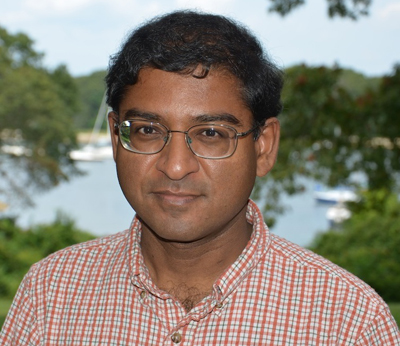 Prabal Dutta is an
Assistant Professor of Electrical Engineering and Computer
Science at the University of Michigan. He envisions a
future in which the Internet of Things results in a
trillion new wireless, embedded Internet hosts online
within a decade or so. His research interests include
how these devices and their software systems should be
designed so that they survive and thrive in this
not-too-distant future. More broadly, his research
interests straddle the hardware/software interface and
include embedded systems, networking, and architecture. Prabal Dutta is an
Assistant Professor of Electrical Engineering and Computer
Science at the University of Michigan. He envisions a
future in which the Internet of Things results in a
trillion new wireless, embedded Internet hosts online
within a decade or so. His research interests include
how these devices and their software systems should be
designed so that they survive and thrive in this
not-too-distant future. More broadly, his research
interests straddle the hardware/software interface and
include embedded systems, networking, and architecture.
|
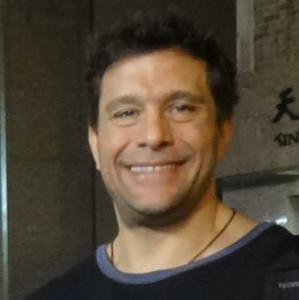 Dawson Engler is an
Associate Professor in EE and CS at Stanford. His research
focuses on techniques that automatically find serious
errors in real code, ranging from system-specific static
analysis, to model checking, to symbolic execution. His
research group has won numerous ``Best Paper'' awards
and its static checking work formed the basis of
Coverity, recently purchased by Synposys. His group has
submitted thousands of bug reports to the Linux kernel
and core libraries such as libc; in some cases these bugs
had been known but unfound for over a decade. He won the
2006 ACM SIGOPS Mark Weiser Award and 2009 Grace Hopper
Award. Dawson Engler is an
Associate Professor in EE and CS at Stanford. His research
focuses on techniques that automatically find serious
errors in real code, ranging from system-specific static
analysis, to model checking, to symbolic execution. His
research group has won numerous ``Best Paper'' awards
and its static checking work formed the basis of
Coverity, recently purchased by Synposys. His group has
submitted thousands of bug reports to the Linux kernel
and core libraries such as libc; in some cases these bugs
had been known but unfound for over a decade. He won the
2006 ACM SIGOPS Mark Weiser Award and 2009 Grace Hopper
Award. |
 Björn Hartmann,
is an Assistant Professor in EECS at UC Berkeley. He
co-founded the CITRIS Invention Lab where he teaches
classes in IoT product design and also co-directs
Berkeley's Swarm Lab. His research in Human-Computer
Interaction focuses on design, prototyping and
implementation tools for the era of post-personal
computing. As computation moves away from single-user
desktop applications, he investigates how new
algorithms, applications and design principles can support
the creation of novel user interfaces. He has received a
Sloan Fellowship, NSF CAREER, and an Okawa research
award. UC Berkeley (prototyping cyber-physical systems), Björn Hartmann,
is an Assistant Professor in EECS at UC Berkeley. He
co-founded the CITRIS Invention Lab where he teaches
classes in IoT product design and also co-directs
Berkeley's Swarm Lab. His research in Human-Computer
Interaction focuses on design, prototyping and
implementation tools for the era of post-personal
computing. As computation moves away from single-user
desktop applications, he investigates how new
algorithms, applications and design principles can support
the creation of novel user interfaces. He has received a
Sloan Fellowship, NSF CAREER, and an Okawa research
award. UC Berkeley (prototyping cyber-physical systems),
|
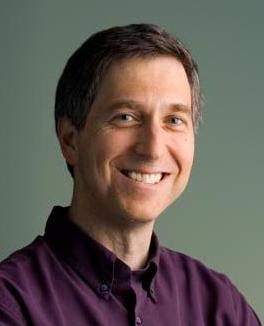 Mark Horowitz is the
Yahoo! Founders Professor at Stanford University and was
chair of the Electrical Engineering Department from 2008
to 2012. He co-founded Rambus, Inc. in 1990 and is a
fellow of the IEEE and the ACM and a member of the
National Academy of Engineering and the American Academy
of Arts and Science. Dr. Horowitz's research interests
are quite broad and span using EE and CS analysis methods
to problems in molecular biology to creating new design
methodologies for analog and digital circuits and
systems. Mark Horowitz is the
Yahoo! Founders Professor at Stanford University and was
chair of the Electrical Engineering Department from 2008
to 2012. He co-founded Rambus, Inc. in 1990 and is a
fellow of the IEEE and the ACM and a member of the
National Academy of Engineering and the American Academy
of Arts and Science. Dr. Horowitz's research interests
are quite broad and span using EE and CS analysis methods
to problems in molecular biology to creating new design
methodologies for analog and digital circuits and
systems. |
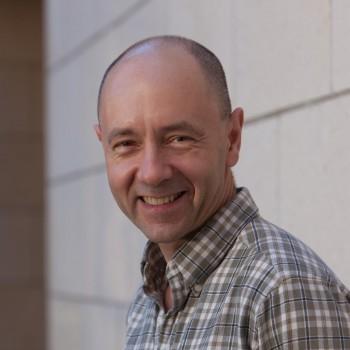 Greg Kovacs is a
Professor of Electrical Engineering at Stanford
University, with a courtesy appointment in the
Department of Medicine, Cardiovascular Division. He
holds a BASc (EE) from from the University of British
Columbia, an MS (BioE) from U.C. Berkeley, a PhD (EE)
and an MD from Stanford. He is a Fellow of the IEEE and
AIMBE. Greg has been active in cardiovascular device
design, physiology in extreme environments, mixed-signal
circuit design, and sensor development, as well as many
educational initiatives and co-founding the Bioengineering
Department at Stanford. His extensive government work
includes serving as Investigation Scientist for the
Columbia space shuttle accident investigation as well as
Director of the Microsystems Technology Office of DARPA,
guiding investment of $1.6B from 2008 - 2010. In 2010,
he received the Secretary of Defense Medal for Exceptional
Public Service. He has co-founded several companies,
including molecular diagnostics innovator Cepheid, and
is active in the angel and private equity investment
communities. Greg is a pilot, scuba diver, mountaineer and
maker. Greg Kovacs is a
Professor of Electrical Engineering at Stanford
University, with a courtesy appointment in the
Department of Medicine, Cardiovascular Division. He
holds a BASc (EE) from from the University of British
Columbia, an MS (BioE) from U.C. Berkeley, a PhD (EE)
and an MD from Stanford. He is a Fellow of the IEEE and
AIMBE. Greg has been active in cardiovascular device
design, physiology in extreme environments, mixed-signal
circuit design, and sensor development, as well as many
educational initiatives and co-founding the Bioengineering
Department at Stanford. His extensive government work
includes serving as Investigation Scientist for the
Columbia space shuttle accident investigation as well as
Director of the Microsystems Technology Office of DARPA,
guiding investment of $1.6B from 2008 - 2010. In 2010,
he received the Secretary of Defense Medal for Exceptional
Public Service. He has co-founded several companies,
including molecular diagnostics innovator Cepheid, and
is active in the angel and private equity investment
communities. Greg is a pilot, scuba diver, mountaineer and
maker. |
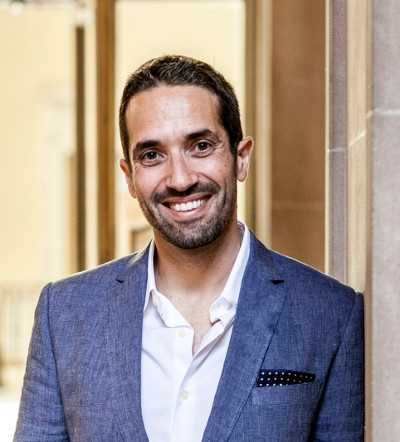 Christos Kozyrakis is
an Associate Professor of Electrical Engineering &
Computer Science at Stanford University. He works on
architectures, runtime environments, and programming
models for parallel computing systems. He co-led the
Transactional Coherence and Consistency (TCC) project that
developed hardware and software mechanisms for
programming with transactional memory. He also led the
Raksha project, which developed practical hardware
support and security policies to deter high-level and
low-level security attacks against deployed
software. Christos received a BS degree from the
University of Crete (Greece) and a PhD degree from the
University of California at Berkeley (USA), both in
Computer Science. Stanford (architecture and system
design), Christos Kozyrakis is
an Associate Professor of Electrical Engineering &
Computer Science at Stanford University. He works on
architectures, runtime environments, and programming
models for parallel computing systems. He co-led the
Transactional Coherence and Consistency (TCC) project that
developed hardware and software mechanisms for
programming with transactional memory. He also led the
Raksha project, which developed practical hardware
support and security policies to deter high-level and
low-level security attacks against deployed
software. Christos received a BS degree from the
University of Crete (Greece) and a PhD degree from the
University of California at Berkeley (USA), both in
Computer Science. Stanford (architecture and system
design), |
 Philip Levis is an
Associate Professor of Computer Science and Electrical
Engineering at Stanford University, where he heads the
Stanford Information Networks Group (SING). His research
centers on computing systems that interact with or
represent the physical world, including low-power
computing, wireless networks, sensor networks, embedded
systems, and graphics systems. He has been awarded the
Okawa Fellowship, an NSF CAREER award, and a Microsoft New
Faculty Fellowship. He’s authored over 60
peer-reviewed publications, including three best paper
awards, one test of time award, and one most influential
paper award. His research is the basis for Internet
standards on how embedded devices connect to the
Internet (RFC6550 and RFC6206). He has an Sc.B. in Biology
and Computer Science with Honors from Brown University,
a M.S. in Computer Science from The University of
Colorado at Boulder, and a Ph.D. in Computer Science from
The University of California, Berkeley. Philip Levis is an
Associate Professor of Computer Science and Electrical
Engineering at Stanford University, where he heads the
Stanford Information Networks Group (SING). His research
centers on computing systems that interact with or
represent the physical world, including low-power
computing, wireless networks, sensor networks, embedded
systems, and graphics systems. He has been awarded the
Okawa Fellowship, an NSF CAREER award, and a Microsoft New
Faculty Fellowship. He’s authored over 60
peer-reviewed publications, including three best paper
awards, one test of time award, and one most influential
paper award. His research is the basis for Internet
standards on how embedded devices connect to the
Internet (RFC6550 and RFC6206). He has an Sc.B. in Biology
and Computer Science with Honors from Brown University,
a M.S. in Computer Science from The University of
Colorado at Boulder, and a Ph.D. in Computer Science from
The University of California, Berkeley.
|
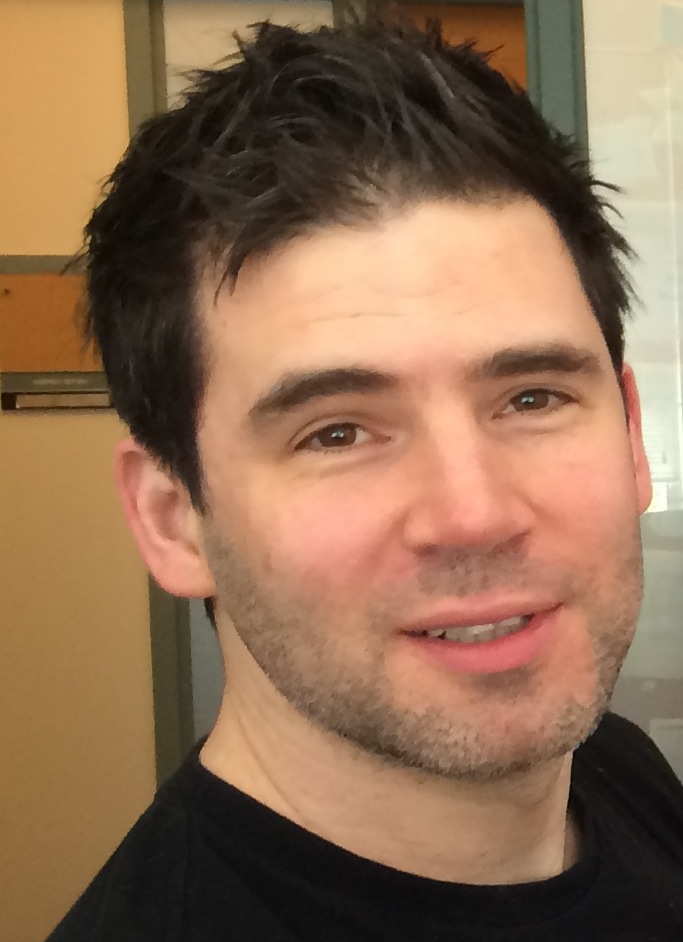 David Mazières
is a professor of Computer Science at Stanford
University, where he leads the Secure Computer Systems
research group. Prof. Mazieres received a BS in Computer
Science from Harvard in 1994 and Ph.D. in Electrical
Engineering and ComputerScience from MIT in
2000. Prof. Mazieres's research interests include
Operating Systems and Distributed Systems, with a
particular focus on security. Some of the projects he
and his students have worked on include SFS (a
self-certifying network file system), SUNDR (a file
system that introduced the notion of fork
linearizability), Kademlia (a widely used peer-to-peer
routing algorithm), Coral (a peer-to-peer content
distribution network), HiStar (a secure operating system
based on decentralized information flow control),
tcpcrypt (a TCP option providing forward-secure
encryption), and Hails (a web framework that can preserve
privacy while incorporating untrusted third-party apps). David Mazières
is a professor of Computer Science at Stanford
University, where he leads the Secure Computer Systems
research group. Prof. Mazieres received a BS in Computer
Science from Harvard in 1994 and Ph.D. in Electrical
Engineering and ComputerScience from MIT in
2000. Prof. Mazieres's research interests include
Operating Systems and Distributed Systems, with a
particular focus on security. Some of the projects he
and his students have worked on include SFS (a
self-certifying network file system), SUNDR (a file
system that introduced the notion of fork
linearizability), Kademlia (a widely used peer-to-peer
routing algorithm), Coral (a peer-to-peer content
distribution network), HiStar (a secure operating system
based on decentralized information flow control),
tcpcrypt (a TCP option providing forward-secure
encryption), and Hails (a web framework that can preserve
privacy while incorporating untrusted third-party apps).
|
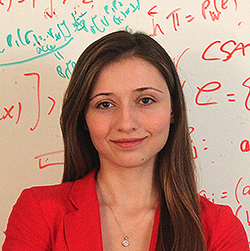 Raluca Ada Popa is an
assistant professor of computer science at UC Berkeley.
She is interested in security, systems, and
applied cryptography. Raluca developed practical systems
(such as CryptDB and Mylar) that protect data
confidentiality by computing over encrypted data, as well
as designed new encryption schemes that underlie these
systems. Some of her work has had early impact, with
Google applying CryptDB’s design to their SQL-like
BigQuery service and surgeons at Boston’s
Newton-Wellesley hospital using Mylar to secure their
medical application. Raluca is the recipient of a Google
PhD Fellowship, Johnson award for best CS Masters of
Engineering thesis from MIT, and CRA Outstanding
undergraduate award from the ACM. Raluca has received
her PhD in computer science as well as her two BS
degrees, in computer science and in mathematics, from MIT. Raluca Ada Popa is an
assistant professor of computer science at UC Berkeley.
She is interested in security, systems, and
applied cryptography. Raluca developed practical systems
(such as CryptDB and Mylar) that protect data
confidentiality by computing over encrypted data, as well
as designed new encryption schemes that underlie these
systems. Some of her work has had early impact, with
Google applying CryptDB’s design to their SQL-like
BigQuery service and surgeons at Boston’s
Newton-Wellesley hospital using Mylar to secure their
medical application. Raluca is the recipient of a Google
PhD Fellowship, Johnson award for best CS Masters of
Engineering thesis from MIT, and CRA Outstanding
undergraduate award from the ACM. Raluca has received
her PhD in computer science as well as her two BS
degrees, in computer science and in mathematics, from MIT.
|
 Christopher Ré
(Chris) is an assistant professor in the Department of
Computer Science at Stanford University. His work's goal
is to enable users and developers to build applications
using analytics that enable them to more deeply understand
and exploit data. Analytic techniques and tools from his
group has been incorporated into scientific efforts
including the IceCube neutrino detector and PaleoDeepDive,
and into Cloudera's Impala and products from Oracle,
Pivotal, Google Brain, and Microsoft's Adam. Christopher Ré
(Chris) is an assistant professor in the Department of
Computer Science at Stanford University. His work's goal
is to enable users and developers to build applications
using analytics that enable them to more deeply understand
and exploit data. Analytic techniques and tools from his
group has been incorporated into scientific efforts
including the IceCube neutrino detector and PaleoDeepDive,
and into Cloudera's Impala and products from Oracle,
Pivotal, Google Brain, and Microsoft's Adam. |
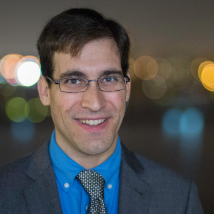 Keith Winstein is an
assistant professor of computer science at Stanford
University. His work applies statistical and predictive
approaches to teach computers to design better network
protocols and applications. Winstein and colleagues
created the State Synchronization Protocol and the Mosh
(mobile shell) tool for remote access over challenged
networks, the Sprout algorithm for transporting video
over cellular networks, which was awarded a 2014 Applied
Networking Research Prize, and the Remy system, in which
computers design network protocols from first
principles. He received a B.S. and M.Eng. in electrical
engineering and computer science, an E.E., and a
Ph.D. from the Massachusetts Institute of Technology. Keith Winstein is an
assistant professor of computer science at Stanford
University. His work applies statistical and predictive
approaches to teach computers to design better network
protocols and applications. Winstein and colleagues
created the State Synchronization Protocol and the Mosh
(mobile shell) tool for remote access over challenged
networks, the Sprout algorithm for transporting video
over cellular networks, which was awarded a 2014 Applied
Networking Research Prize, and the Remy system, in which
computers design network protocols from first
principles. He received a B.S. and M.Eng. in electrical
engineering and computer science, an E.E., and a
Ph.D. from the Massachusetts Institute of Technology.
|